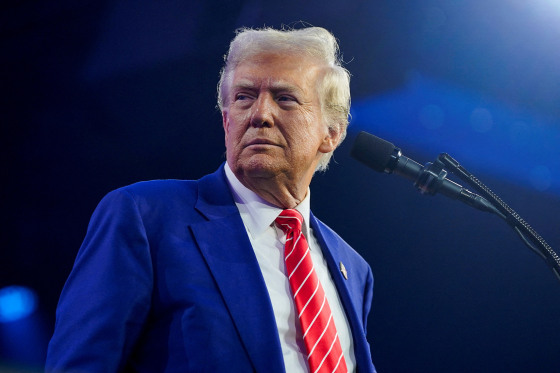
Riots in the streets of Washington during Donald Trump’s first inauguration sparked counterprotests around the world that drew millions of people, including what was thought to be the largest protest day in American history. Four years of loud protests against a president whose win was viewed as a fluke were sparked by the turnout.
This year, hundreds are anticipated to attend protests in support of King and against Trump ahead of Trump’s second inauguration, which falls on Monday, Martin Luther King Day. However, following his second victory—the first time Trump has won the popular vote—the ferocious intensity of the anti-Trump Resistance movement cooled to a smolder, and their numbers are anticipated to be significantly lower than they were eight years earlier.
Trump has become more confident as a result, and the grassroots opposition has become weaker. Some people wonder if all of their letter-writing, door-knocking, protesting, and fundraising efforts during his first term were worthwhile.
Celebrities are more likely to remain on the sidelines, anti-Trump marches will be smaller, and businesses that occasionally found themselves in an awkward alliance with left-leaning protesters—donating to Trump’s inaugural committee and sending their CEOs to attend—will be less likely to participate.
The seasoned Democratic activist and former chair of the Democratic National Committee, Donna Brazile, stated that this will not be a period of opposition as it was in 2017.
For the first time since pollsters started following him, Trump’s favorability rating is at an all-time high and has reached net positivity, which means that more people like him than dislike him. According to even Democratic polling, a majority of Americans believe that immigration and the economy will improve under his leadership.
Approximately 60 Democratic senators did not attend Trump’s first inauguration, but fewer are scheduled to do so this year. Some people who intend to skip claim to be doing it for irrelevant reasons. Former House Speaker Nancy Pelosi, for example, will not attend Trump’s second inauguration since she is still recuperating from surgery.
It’s hardly a boycott, according to some who want to attend the inauguration somewhere else. One of the most vocal leftists on Capitol Hill, Rep. Alexandria Ocasio-Cortez, D-N.Y., even attributed her planned absence to a logistical issue rather than a desire to ignore Trump.
Rep. Jared Huffman, a Democrat from California who did not attend Trump’s first inauguration, told Politico that he intends to go on Monday. Now it’s different. Whether we like it or not, the nation recently elected this man despite his complete and utter ugly nature.
Sen. Ruben Gallego, D-Ariz., who was just elected and who was a member of the House when he skipped Trump’s first inauguration in 2017, said he is going this time.
He told Phoenix-based NBC affiliate KPNX-TV that the electorate made it very evident during the previous election cycle that they wanted a chance for Democrats and Republicans to cooperate. I will therefore approach this office with the goal of doing everything in my power to serve the interests of all Arizonans, and taking part in this ceremony is part of that.
There will be a march on Washington on Saturday. Additionally, authorities are preparing for any disruptions on Monday in the nation’s capital. However, all indications suggest that the response to Trump’s inauguration was less than it was eight years ago, when prominent liberals congregated throughout the city for counterprogramming events and some protesters set fire to cars and shop windows.
Less than 50,000 people had signed up to attend the People’s March, a Saturday demonstration organized by some of the same organizations who coordinated the 2017 Women’s March, as of Friday afternoon. Compared to eight years ago, when up to 500,000 people were thought to have crowded downtown Washington, that turnout would be far lower.
Less than 300 RSVPs were received Friday afternoon for a planned satellite protest in West Palm Beach, Florida, the location of Trump’s Mar-a-Lago property. There were over 1,500 RSVPs for another in New York City.
Separately, civil rights activist and MSNBC anchor the Rev. Al Sharpton is organizing a gathering in King’s honor at a historic Black church in Washington, only a few blocks north of the White House.
Speaking from her animal sanctuary outside of Joshua Tree, California, co-founder of the Women’s March Vanessa Wrublet informed the BBC that she would not be participating in this year’s anti-inaugural march.
“I had no idea it was still in existence,” she told the news organization.
Meanwhile, the celebrities who used their platforms to spread the anti-Trump sentiment during his inauguration in 2017 have slowed down.
A long list of artists reportedly declined to perform at Trump’s first inauguration, indicating that he had trouble getting well-known performers to come. Carrie Underwood, on the other hand, is scheduled to perform this time and is expected to receive some negative online feedback in addition to some unlikely supporters, such as Whoopi Goldberg.
Stars including Meryl Streep, Hugh Laurie, and Viola Davis delivered passionate anti-Trump statements during the Golden Globes celebration that preceded Trump’s first inauguration. The speakers at this month’s ceremony, however, were more subdued and only made oblique references to the nation’s challenging times.
Scarlett Johansson, Alec Baldwin, Cher, Emma Watson, Julia Roberts, Jake and Maggie Gyllenhaal, Alicia Keys, and many more were among the many famous people that took part in the 2017 Women’s Marches.
While some celebrities may still come, the speakers roster for Saturday’s march has lower-wattage and primarily consists of activists.
Comedian Josh Gondelman wrote on X that there will be a lot less squeamishness about Trump in entertainment and culture. More entertainment that caters to their preconceived notions of Trump supporters will replace resistance-based entertainment.
The annual anti-abortion March for Life, a conservative rally that takes place shortly after Trump’s inauguration, is expected to attract about 150,000 people next weekend, which is three times the anticipated number of people who will attend this Saturday’s anti-Trump march.
